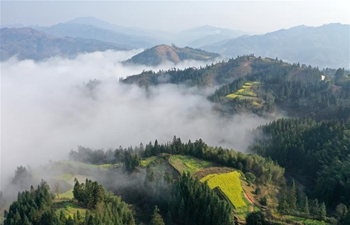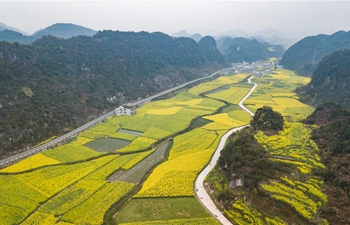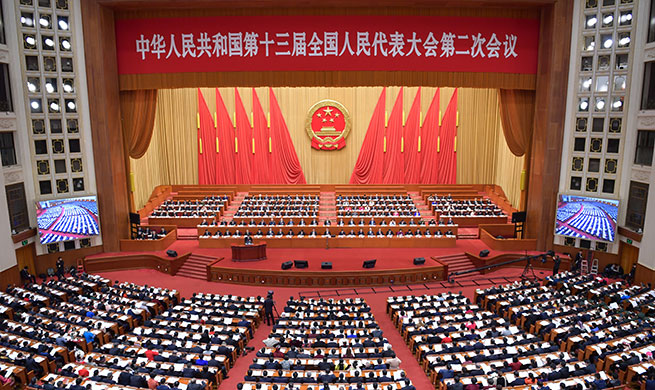BEIJING, March 12 (Xinhua) -- Chinese researchers have found that the lake water storage in the Qinghai-Tibet Plateau increased by 140.8 cubic kilometers from 1990 to 2013.
Lake water storage change is an important factor influencing hydrological cycles, the regional environment, and the climate on the Qinghai-Tibet Plateau because of the large number and huge areas of lakes, researchers from the Chinese Academy of Sciences (CAS) said.
Due to monitoring and continuous satellite data for some large lakes, the estimates of water storage changes for all lakes throughout the Qinghai-Tibet Plateau over a long time is still challenging.
CAS researchers monitored the lake water storage changes of 317 lakes from 1976 to 2013 using radar data and Landsat images.
These lakes are located within inland basins and occupied approximately 80 percent of the total lake surface areas of the Qinghai-Tibet Plateau in 2013.
The results showed that the lake water storage decreased by 23.69?cubic kilometers from 1976 to 1990 and increased by 140.8?cubic kilometers from 1990 to 2013.
Increased water storage was mainly in the central and northern part of the plateau, according to their study.
The increase in the total lake surface area during the period from 2000 to 2013 in the northern part of the plateau was about 1,982 square kilometers, greater than the 1,869 square kilometers in the central part.
But the increase in the water storage in the northern part was half that in the central part. This shows that lake surface area changes cannot represent the degree of lake water storage change due to differences in the terrain and lake size.
Between 2000 and 2013, the researchers disclosed that rainfall was perhaps the primary reason for lake changes throughout the Qinghai-Tibet Plateau, while a decreasing evaporation rate contributed little to the expansions of the lakes.
Based on observation data, they estimated that glacial meltwater might have contributed remarkably to the increasing water storage from 2000 to 2013, especially in extremely cold and dry regions.

















